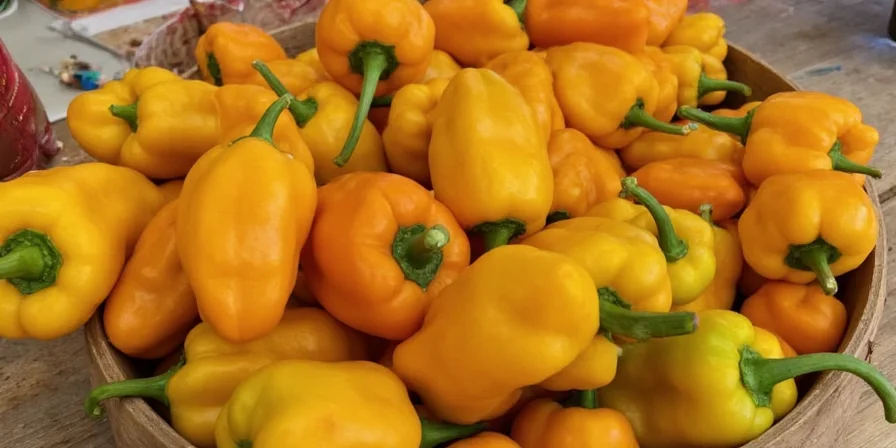All About Hatch Chile Peppers
Hatch chile peppers are not just any ordinary peppers; they are a culinary treasure deeply rooted in the culture and traditions of New Mexico. Renowned for their unique flavor profile and versatility, these chiles have garnered a following that extends far beyond their native region. In this article, we will explore the history, varieties, culinary uses, and health benefits of Hatch chile peppers, as well as how they fit into the grand tapestry of global spice traditions.
The History of Hatch Chile Peppers
Hatch chiles are grown exclusively in the Hatch Valley, located in New Mexico. The region's unique climate, soil, and irrigation methods contribute to the distinct taste of these peppers. The cultivation of Hatch chiles began over a century ago when native New Mexican farmers started growing them as a staple crop. Over time, the Hatch chile gained recognition beyond its local roots, becoming a celebrated ingredient in various cuisines.
Origin and Development
- Introduced by Spanish settlers in the late 1800s.
- Developed through selective breeding for flavor and heat.
- Recognized by the USDA and other agricultural organizations.
Varieties of Hatch Chile Peppers
Hatch chile peppers come in several varieties, each with its distinct flavor, heat level, and culinary applications. The most notable varieties include:
| Variety | Heat Level (Scoville) | Flavor Profile |
|---|---|---|
| Green Hatch Chile | 1,000 - 8,000 | Earthy, smoky, and slightly sweet |
| Red Hatch Chile | 1,000 - 10,000 | Rich, sweet, and slightly spicy |
| Hatch Big Jim | 2,500 - 5,000 | Fruity with a mild heat |
| Hatch Sandia | 4,000 - 8,000 | Spicy and bold |
Choosing the Right Variety
When selecting Hatch chiles, consider the following:
- Heat tolerance: Determine how much heat you can handle.
- Flavor preferences: Decide if you prefer a smokier or sweeter profile.
- Application: Choose the type based on how you plan to use them, such as roasting, grilling, or adding to salsas.
Culinary Uses of Hatch Chile Peppers
The versatility of Hatch chile peppers makes them a favorite in various dishes. Here are some popular culinary applications:
Roasting and Grilling
Roasting Hatch chiles brings out their natural sweetness and enhances their smoky flavor. Here’s a simple method to roast them:
- Preheat your oven or grill to high heat.
- Place the chiles on a baking sheet or grill rack.
- Roast until the skins are blistered and charred, about 10-15 minutes.
- Remove from heat and place in a sealed container to steam for 10 minutes.
- Peel the skins off and use the roasted chiles in various dishes.
In Salsas and Sauces
Hatch chiles can elevate the flavor of salsas and sauces:
- Combine roasted Hatch chiles with tomatoes, onions, and cilantro for a vibrant salsa.
- Add them to enchilada sauce for a spicy kick in your favorite Mexican dishes.
In Soups and Stews
Chop Hatch chiles and add them to soups and stews for depth of flavor:
- They pair exceptionally well with black beans and corn.
- Use in chili recipes to add a regional twist.
In Main Dishes
Hatch chiles can be used in a variety of main courses:
- Stuff them with cheese, rice, or meats for a delicious stuffed pepper.
- Incorporate them into casseroles or pasta dishes for added spice.
Health Benefits of Hatch Chile Peppers
Beyond their culinary appeal, Hatch chile peppers offer several health benefits:
- Rich in Vitamins: High in vitamins A and C, which are essential for immune function.
- Antioxidant Properties: Contain compounds that may help reduce inflammation.
- Weight Management: Their spicy nature can boost metabolism.
Hatch Chile Festivals: A Celebration of Flavor
The popularity of Hatch chile peppers has led to the establishment of several festivals celebrating their harvest. The Hatch Chile Festival, held annually in Hatch, New Mexico, attracts thousands of visitors who come to enjoy delicious food, live music, and local art.
What to Expect at the Festival
- Food vendors showcasing various dishes featuring Hatch chiles.
- Cooking demonstrations by local chefs.
- Live entertainment and family-friendly activities.
How to Grow Hatch Chile Peppers
If you're inspired to grow your own Hatch chile peppers, here are some tips:
Growing Conditions
- Climate: Hatch chiles thrive in warm climates with plenty of sunlight.
- Soil: Use well-draining soil rich in organic matter.
Care and Maintenance
- Water regularly, ensuring the soil remains moist but not soggy.
- Fertilize with a balanced fertilizer to promote healthy growth.
Preserving Hatch Chile Peppers
To enjoy Hatch chiles year-round, consider preserving them through various methods:
- Freezing: Roast and chop the chiles, then freeze them in airtight bags.
- Canning: Pickle roasted chiles for use in salads and sandwiches.
Conclusion
Hatch chile peppers are more than just a spicy ingredient; they are a representation of cultural heritage, culinary creativity, and community spirit. Whether you’re enjoying them fresh, roasted, or in a sauce, Hatch chiles bring a taste of New Mexico to your table. Explore the world of Hatch chiles, and let their bold flavors inspire your cooking adventures!











 浙公网安备
33010002000092号
浙公网安备
33010002000092号 浙B2-20120091-4
浙B2-20120091-4